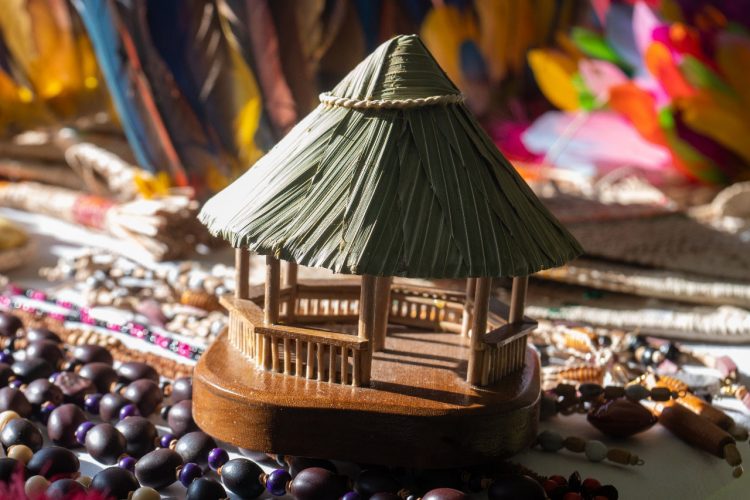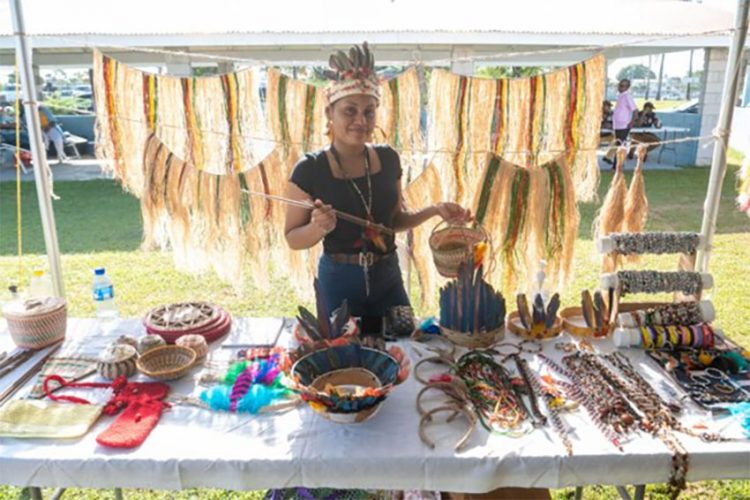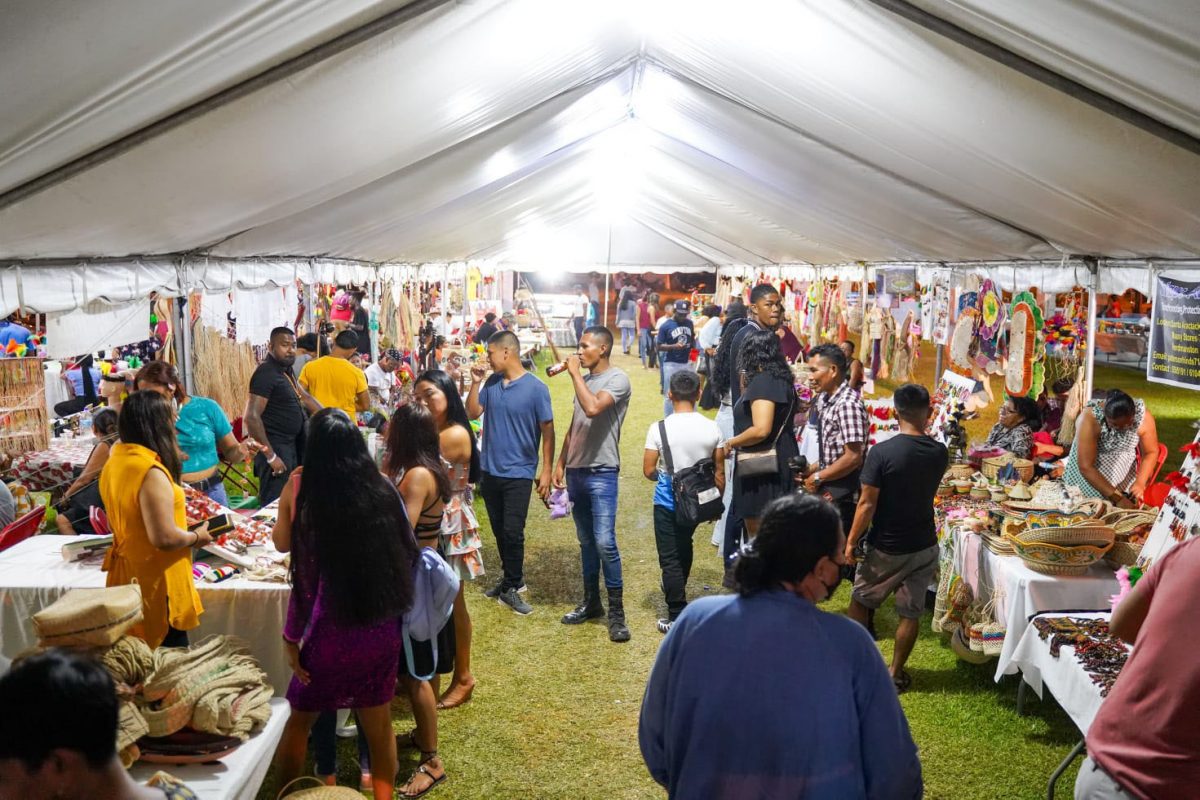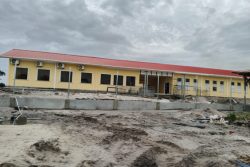While these Department of Public Information (DPI) pictures provide an eye-catching glimpse of the talents of our Amerindian communities, and more particularly, insightful images of their lives and their livelihoods, conversations with those creative individuals and groups that have journeyed from their homes in the various communities to be part of the Heritage programme this year revealed by mainstream media, may still be decidedly ‘off the pace’ insofar as the real significance of their participation in the event. While the reportage of the Department of Information saw the highly impressive display of craft and other creations as reflective of an undertaking designed to “portray the wonder and originality of Amerindian culture”, the participants in the event with whom the Stabroek Business spoke with appeared much more keen to discuss the valuable windfalls that will accrue to them from this once-a-year opportunity to access a coastal market with a significantly higher level of disposal income than those other markets to which they have easier access.


Our brief, but insightful interviews with the participants in the event, revealed that contrary to what we, as coastlanders might think, the Heritage Month product promotion pursuits go beyond the notion of bringing glimpses of the hinterland to the coast; they are serious excursions into entrepreneurships that seek to capture a market that is fleeting and which, moreover, still needs to come to an understanding of the utilitarian value of the offerings which the Amerindian entrepreneurs bring to the table. Heritage Month product displays have these days, drifted away from the coastal expectation that the event will be underpinned overwhelmingly by the distribution of samples. Those who make the treks from their distant communities must make investments in product preparation, transport and travel and in ‘keeping’ themselves in the capital during their stay; so that while they are not unmindful of the various forms of support that coastlanders might demonstrate for their effort, it is by no means unreasonable to anticipate that they undertake their treks from their communities to ‘do business’ and that if their efforts in that regard are to pay dividends coastlanders must demonstrate a generous measure of respect for their effort.
Contextually, not nearly enough attention has, over the years, been paid to the entrepreneurial dimension to Amerindian Heritage Month even with the best will in the world and a week of product display in a single, dedicated space. Why should our urban entrepreneurial class not throw in their lot (along with government, of course) to finance and otherwise support aggressive seasonal product displays designed to significantly expand the market for indigenous products beyond occasional one-off initiatives or else, other poorly marketed product promotion events involving Amerindian goods? Acknowledgement of the bona fides of Amerindians must not be reflected merely in the once-a-year glimpses at the range of their talents which Heritage Month affords. To undo the marginalization that has been their lot over the years (and there can be no denying the fact that Amerindians have historically been considerably marginalized) has to be acknowledged in a fulsome way; so that rather than enable a once-a-year Heritage Month windfall, it would be altogether appropriate to genuinely bring the Amerindian way of life – their craft, their cuisine, their clothing and the various other appurtenances that are a part of their lives, into our own.
Whether we wish to concede it or not, the “One People’ stanza in our National Motto will, in a sense, always become subject to query until what is still the lesser ‘visibility’ of our Amerindians is fixed in meaningful ways. On a separate note the headline on the DPI report on the Heritage Month Product Display reads Exhibitors grateful for opportunity to display Amerindian culture. Really? Is there a need for them to be ‘grateful?’








